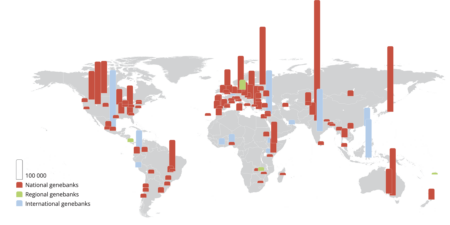A bit of a roundup of data stuff today. Things have been piling up in my to-blog folder, and the time has come to tidy up.
First up, and most relevant here, is the webinar on how to use Genesys. It’s long, admittedly, but well worth it if you have anything to do with genebanks. Genesys can accommodate phenomic data, of course, and coincidentally here’s a set of training materials on how to do characterization and evaluation of plant genetic resources.
The botanic gardens community has its own Genesys-type thing, called PlantSearch, and there’s been an upgrade recently that readers here might be interested in. All that’s missing for the trifecta is herbaria :)
Finally, you might want to combine provenance data from Genesys (or indeed the forest genetic resources databases we blogged about earlier this week) with different features of the environment, right? Right. So let me quickly point to new spatial datasets on the world’s soils and agro-ecological zonation (which, interestingly, allows you to upload the sort of KML files that Genesys can spit out), the extent of cropland in Africa, and — why not? — the global distribution of cattle, goats, sheep and horses.
